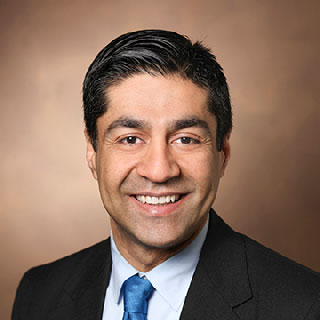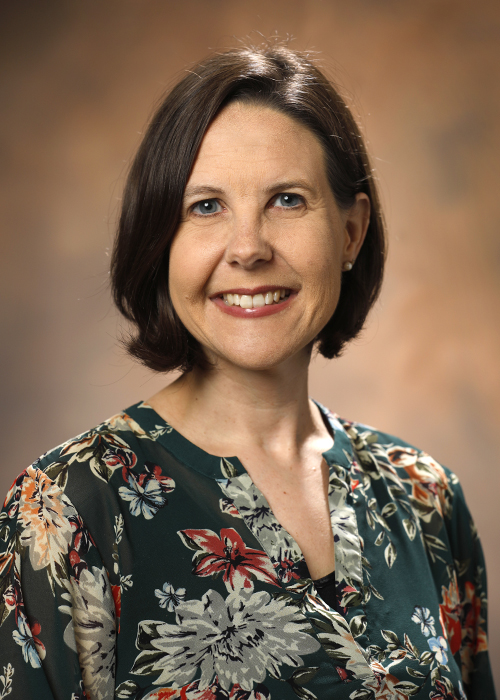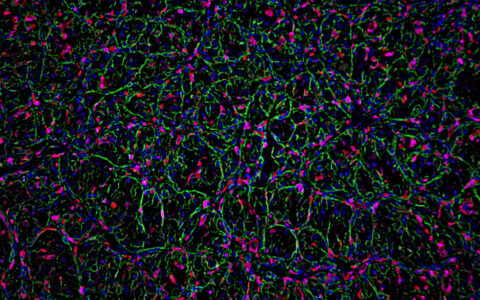Time-to-treatment is nowhere more essential than in pancreatic cancer cases, often characterized by aggressive growth and a dim likelihood of survival.
Yet, scheduling of the myriad tests and treatments following an initial visit can easily be confounded by systemic barriers and overbooked schedules that pervade many large centers handling these complex cases. Concern is growing across the country, as patient volume is expanding and more people are succumbing to the disease.
Vanderbilt University Medical Center has responded to this pressure by harnessing the time and prowess of a highly experienced surgical oncology nurse to follow patients through their entire medical journey.
In 2020, pancreatic and gastrointestinal surgeon Kamran Idrees, M.D., division chief of surgical oncology and endocrine surgery at Vanderbilt, first proposed the idea of employing a pancreatic cancer nurse navigator. He then implemented the role within the Vanderbilt-Ingram Cancer Center’s pancreas clinic, partnering with Amy Hayes, B.S.N.
Their goal, now achieved, was to reduce time from diagnosis to treatment from about a month, on average, to almost half that time – or 16 days.
“Time-to-treatment has been underappreciated, but there is well-published data showing that, across all cancers, decreasing time-to-treatment results in better survival in the long run,” he said.
He refers to Hayes’ role as “nurse navigator 2.0,” due to the enhanced supportive services she provides, orchestrating all multidisciplinary appointments and providing ready access to her cell phone number.
“I meet the patients and families in person in clinic and let them know I will be their point person,” Hayes said. “Some people are coming from as far as four or five hours away. Some have never been sick before, and there are so many challenges facing them with this diagnosis. I’m going to line everything up for them and ensure smooth transitions so they can focus on healing.”
Facets of Urgency
Two weeks lost or gained can make a particularly big difference – especially for patients whose Vanderbilt surgeons are resecting cancers deemed unresectable by others. They use special expertise and technology, such as intraoperative radiation therapy, to extend lives.
“The sooner we start with curative surgery or systemic therapy, the better the life extension,” Idrees said. “But for people with inoperable cancer, time-to-treatment matters just as much. They may have only three or four months to live, so a few extra weeks of life become highly significant.”
Patient navigators have long been helping patients keep tabs on the financial side of their health care journey, and nurse navigators often assist with scheduling.
“What we have is different: a 26-year surgical oncology nurse devoted solely to this narrow population where the stakes for consolidating testing and time to treatment are very high,” Idrees said. “Amy is truly their quarterback who knows this complex disease that is both cancer and an endocrine disease, knows their health profile, and knows the pertinent caveats to treatment.”
Shortening the Timeframe
Evaluation, imaging and labs for patients with pancreatic cancer encompass 10 subspecialty areas, Idrees said, with the medical oncologist, radiation oncologist, the gastroenterologist the most intrinsic to care.
While patient testing has typically been done serially, Idrees and Hayes streamline the process by scheduling them in parallel.
“We ask: What all can a patient have done in a single visit to Vanderbilt? How do we capture this specialist who has clinic here on Wednesdays, and how do we eliminate barriers for the referrals we are going to need, get the insurance approvals, and set up the administration of chemotherapy near the patient’s home?” Hayes said.
The average time between a patient’s first phone call to VUMC to their initial visit has been shortened, Idrees said. Patients may receive point-of-care germline testing, if cancer is suspected, at their initial visit.
Plusses for Providers
The nurse navigator helps physicians, too.
“Helping the patient is the goal of this initiative, but benefits to the physician are also enormous,” Idrees said. “You aren’t looking at a long list of calls or portal messages at the end of the day, and you know your patients are getting rapid evaluation and treatment and that nothing is falling between the cracks.”
A nurse navigator who prevents outmigration of two to three surgical patients a year saves the Vanderbilt the equivalent of their salary, Idrees said. But experience so far has exceeded that. In 2023, he noted that five patients transferred into Vanderbilt after getting second opinions from VUMC doctors; two others sought second opinions elsewhere, but stayed with Vanderbilt.
Strict scheduling is needed to shrink time-to-treatment, and that is a concern, Hayes concedes, adding that most providers are willing to face a potentially longer day accomplish this feat .
“We all realize this is a very difficult situation, so most everyone does whatever they can do to make room,” she said.
2.0 Role in Research
Hayes is also involved in Vanderbilt’s multidisciplinary pancreas cyst clinic, tracking premalignant cells for changes. In 2020, this clinic served about 400 patients and is participating in the ECOG-ACRIN pancreatic cyst trial on the benefit of increased imaging and endoscopic procedures.
“Last year we also started the multidisciplinary high risk pancreatic cancer surveillance program for patients who either have a really strong family history or a gene, like BRCA, that is associated with pancreas cancer,” Idrees said. “Amy is involved in these programs and on top of all the options for treatment and prevention.”






